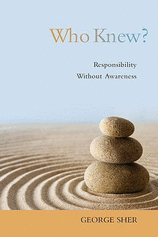New from Harvard University Press:
Earthly Paradise: Myths and Philosophies by Milad Doueihi, translated by Jane Marie Todd.
 About the book
About the book, from the publisher:
Paradise haunts the Biblical West. At once the place of origin and exile, utopia and final destination, it has shaped our poetic and religious imagination and informed literary and theological accounts of man’s relation with his creator, with language and history. For Kant, Paradise was the inaugural moment for the rise and progress of reason as the agency of human history, slowly but certainly driving humanity away from error and superstition. Nietzsche described it more somberly as the very embodiment of the conflict between humanity and its beliefs.
In Earthly Paradise, Milad Doueihi contemplates key moments in the philosophical reception and uses of Paradise, marked by the rise of critical and historical methods in the Early Modern period. How do modern debates around the nature of evil, free will, and the origin of language grow out of the philosophical interpretations of Paradise as the site of human history? How do the reflections of Spinoza, Pierre Bayle, Leibniz, and their contemporaries inform our current ideas about the Biblical narrative of the Fall? Is Paradise the source of human error or an utopian vision of humanity itself?
 About the book, from the publisher:
About the book, from the publisher:






























